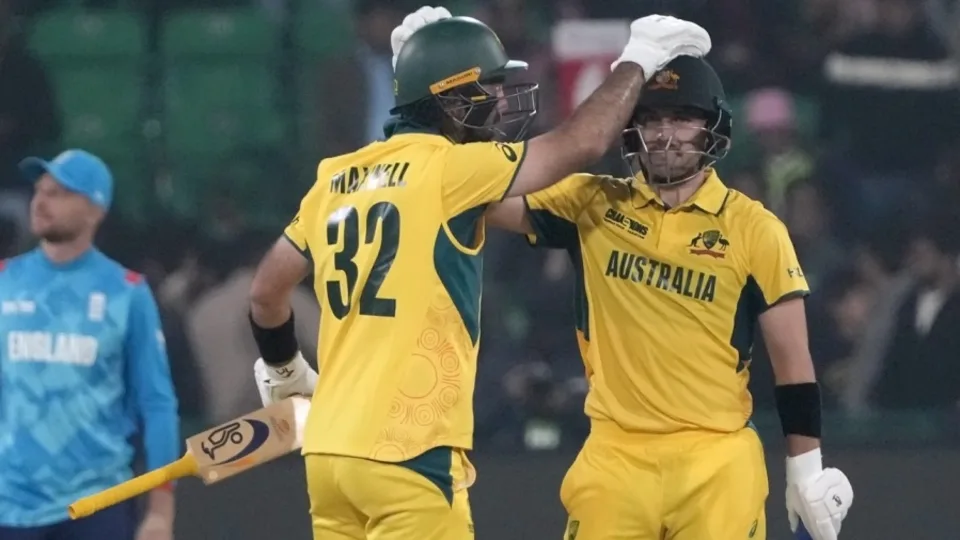
Josh Inglis on his special knock that got Australia the victory in their opening group game against England in Lahore.
Josh Inglis had switched into declutter mode.
The asking rate was getting close to eight, there was still more than 200 runs to be scored, and there wasn’t much more batting to be done. There wasn’t much time for consolidation and regrouping, but there wasn’t much space for mistakes either.
Despite his apparent potential, Inglis hasn’t yet had a particularly noteworthy ODI career, and Australia was vying for what would be the biggest chase in an ICC event. He had amassed 543 runs in 28 games at an average of less than 22, with his most notable ODI contribution being a scorching 65 against the West Indies in February 2024. He had to put up an effort that was lacking in his career thus far if Australia were to get near.
None of this, Inglis understood, would be helpful to worry about. “We were in and around the run rate to start off with, so that was a big help,” Inglis said after the game. “The partnership between Shorty [Matt Short] and Marnus [Labuschagne] was really important. They sort of set the platform there, got us off to a good start. And then me and [Alex] Carey, we didn’t really say too much out there. Carey is pretty quiet when he’s batting, so I think we were going pretty well. So, I just tried to not look at the scoreboard too much, [not] look at the run rate, just keep batting the way we were going.”
Carey and Inglis controlled the asking rate while minimising risks in the short term. England, like Australia, would have to use part-time bowling to make up for the security of a deeper batting order. Carey hit Livingstone for two fours in the second over after the pair clicked, and Inglis hit him for six the next over. Without slipping too far behind, it counterbalanced the tactful deference they showed Adil Rashid.
“We trained here at night for the last couple of days and it got really dewy around half past seven or eight o’clock,” Inglis said. “So, we sort of knew that was in our favour during the run chase and if we could take it deep enough it would be tough for the bowlers at the back end. It made life easier for us, the wicket skidded on beautifully and it really helped our run chase.
“And we knew if we could get close enough with Maxi [Glenn Maxwell] still to come – we’ve just seen what Maxi can do and everyone’s seen it for a while now. So, to get close enough for him to be able to explode like that at the back end was probably in the back of our thoughts.”

